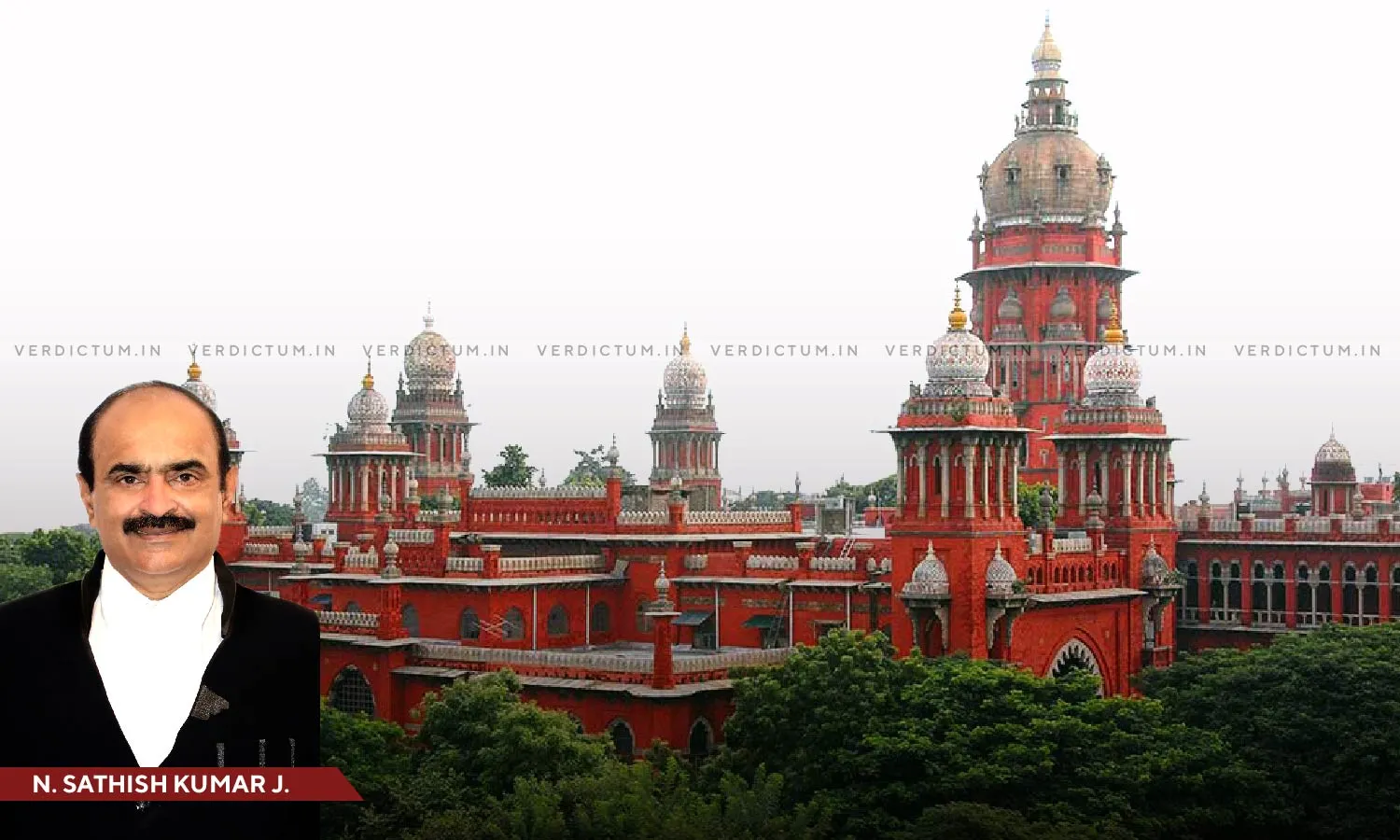S. 152 CPC Benefit Can’t Be Taken If Suit Is Terminated Upon Passing Of Final Decree Being Engrossed In Stamp Paper: Madras HC

Justice N. Sathish Kumar, Madras High Court
The Madras High Court observed that the benefit of Section 152 of the Civil Procedure Code (CPC) cannot be taken if the Suit has been terminated upon passing of the final Decree being engrossed in stamp paper.
The Court observed thus in a Revision Petition challenging the Order passed by the Principal District Munsif, Villupuram, rejecting the Applications to amend the preliminary Decree.
A Single Bench of Justice N. Sathish Kumar enunciated, “… it is clear that during the pendency of partition suit or during the period between the passing of preliminary decree and final decree in the partition suit it is open to a party to seek modification or enhancement of his shares till the passing of the final decree. Once the final decree is passed the suit terminates and the remaining issues are to be worked out at the stage of execution. In the instant case, admittedly the final decree has been passed before the judgment in Vineeta Sharma. Hence, the petitioners cannot get the benefit of the judgment by filing an application under Section 152 CPC since the suit has terminated upon passing of the final decree which has also been engrossed in stamp paper.”
Advocate J. Jayan represented the Petitioner while Senior Advocate P. Valliapan, Amicus Curiae Sharath Chandran, and Advocate V. Pavel represented the Respondents.
In this case, the Plaintiff who was then a minor represented by his mother, filed a Suit for Partition, claiming ½ share in the Suit properties stating that the same were ancestral ones of a man. The said man had four sons and the Plaintiffs had claimed oral partition in 1987 wherein the Suit properties were allotted to the Petitioner. Therefore, the Plaintiff (minor) as a co-parcener claimed ½ share and the Trial Court granted a preliminary Decree in his favour, which was later finalized.
However, the Petitioners claimed that, according to the Supreme Court's judgment in Vineeta Sharma v. Rakesh Sharma and Others, they were equally entitled to a share as co-parceners. The Petitioners argued that the Plaintiff is only entitled to a ¼ share, and they should receive a joint ¼ share. They filed an Application to amend the preliminary Decree, which was dismissed. Being aggrieved by this, the Petitioners filed the Revision Petition before the High Court.
The High Court in the above regard, said, “… it is clear that the jurisdiction of the Court a suit for partition is extinguished upon passing the final decree.”
The Court noted that the question of delivery of properties is a matter to be considered at the stage of execution and is not a matter falling for contemplation in the final decree stage. It added that, as the final decree has been drawn up, signed, and engrossed in stamp paper of requisite value, the Suit will come to an end for all practical purpose.
“Therefore, once the decree has been passed by fixing metes and bounds and the same is engrossed on the stamp paper on the requisite value, the petitioners cannot seek enlargement of shares on the ground of change of law”, it concluded.
Accordingly, the High Court dismissed the Revision Petition.
Cause Title- Aburvakounder (Died) & Ors. v. Balamurugan & Anr.


